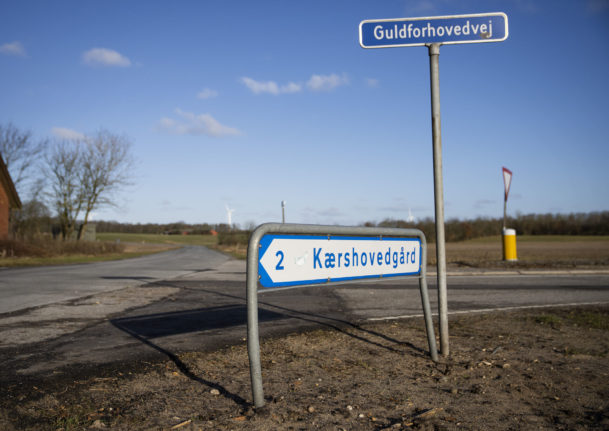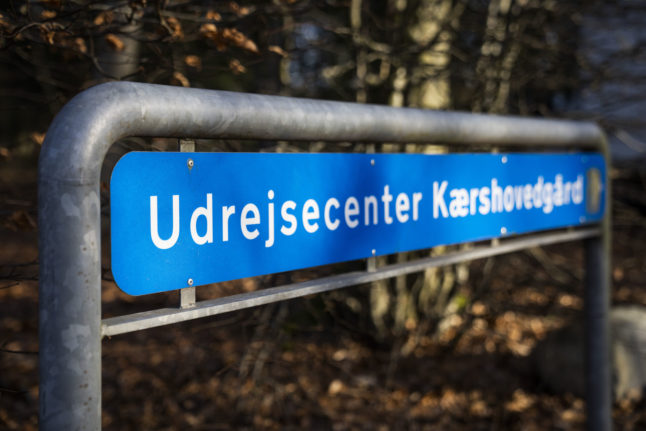Conditions at the centre, which is used to accommodate people who have no residency rights in Denmark, are so poor that they prevent residents from “living life”, the ombudsman said in a statement released on Friday.
The criticisms are based in an inspection of the centre by the parliamentary watchdog in autumn 2023.
Conditions are described as being “a heavy burden and limit on basic living, and this to an even greater extent than before in relation to the general security situation at the departure centre”.
Located 13 kilometres from Ikast in Jutland, the Kærshovedgård facility is one of two deportation centres in Denmark used to house rejected male and female asylum seekers who have not agreed to voluntary return, as well as persons with so-called ‘tolerated stay’ (tålt ophold) status.
The residents do not have permission to reside in Denmark but many cannot be forcibly deported because Denmark has no diplomatic relations or return agreements with their home countries.
READ ALSO: New film reveals life at Denmark’s controversial deportation centre
Kærshovedgård houses people who have not committed crimes but have no legal right to stay in Denmark, for example due to a rejected asylum claim; as well as foreign nationals with criminal records who have served their sentences but are awaiting deportation.
It first became prominent in the mid-2010s, when it received criticism for imposing conditions that could lead to mental illnesses in residents.
Current conditions at the facility were not found to breach any conventions, the ombudsman concluded.
However, the inspectors were “of the impression that residents experience greater feelings of insecurity at the departure centre [and there is] a lot of crime including the sale of narcotics.”
“Additionally, the atmosphere at the departure centre carries a sense of deterioration and a significant number of residents have addiction problems,” the ombudsman statement said.
The ombudsman also observed that, since a previous visit in 2017, “there has been a change in the composition of residents in that people who have a deportation [criminal, ed.] sentence and who did not previously live at Kærshovedgård now make up the largest group at the location”.
READ ALSO: Relocation of women from Danish expulsion centre ‘could take months’
Measures should be taken to improve the situation, the ombudsman said.
“The security situation for the residents of Kærshovedgård appears to have worsened since the ombudsman’s last visit, and this is a development that should be rectified,” the ombudsman, Niels Fenger, is quoted in the statement.
“These are people who are required by the authorities to stay at Kærshovedgård, so the departure centre must be ensured to be a safe place to stay”, he said.
A recommendation is also made in the ombudsman report for new residents at Kærshovedgård to be screened for suicide risk.
Human rights organisations Danish Institute Against Torture and the Danish Institute for Human Rights were also present at the ombudsman inspection of Kærshovedgård. 17 residents with “tolerated stay” status were interviewed and the general conditions observed.
The parliamentary ombudsman (Folketingets Ombudsmand) is a lawyer appointed by parliament to review complaints against public authorities. The full statement on the Kærshovedgård inspection can be seen (in Danish) here.



 Please whitelist us to continue reading.
Please whitelist us to continue reading.
Member comments